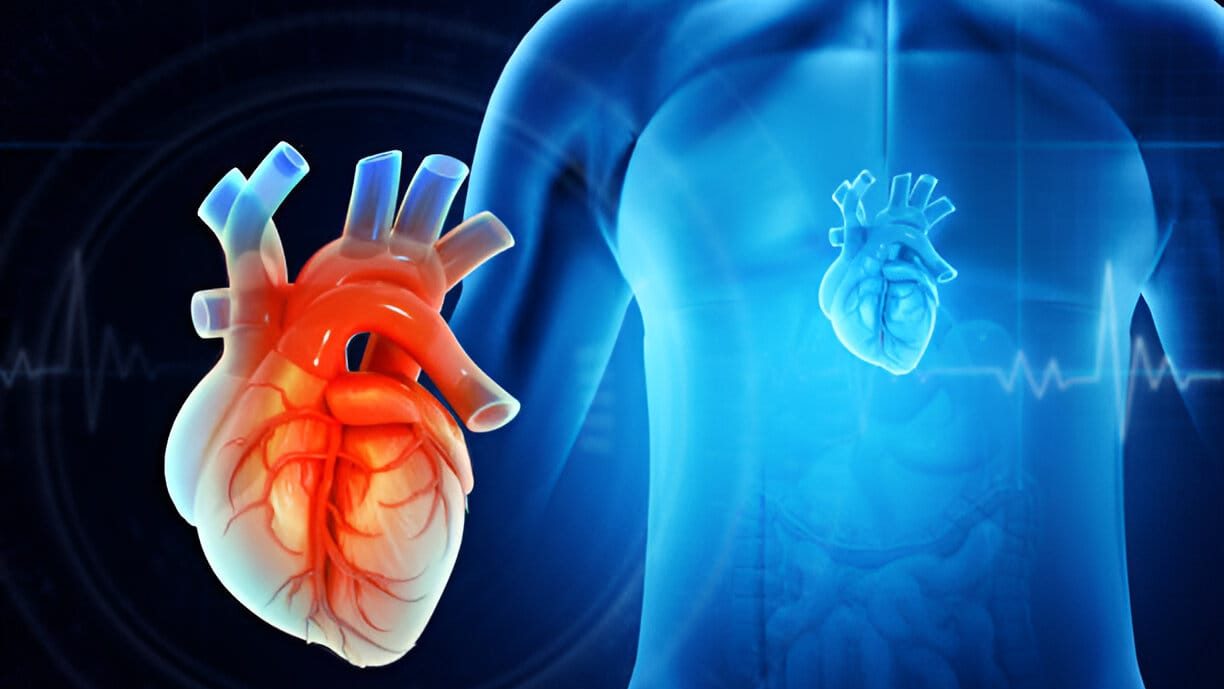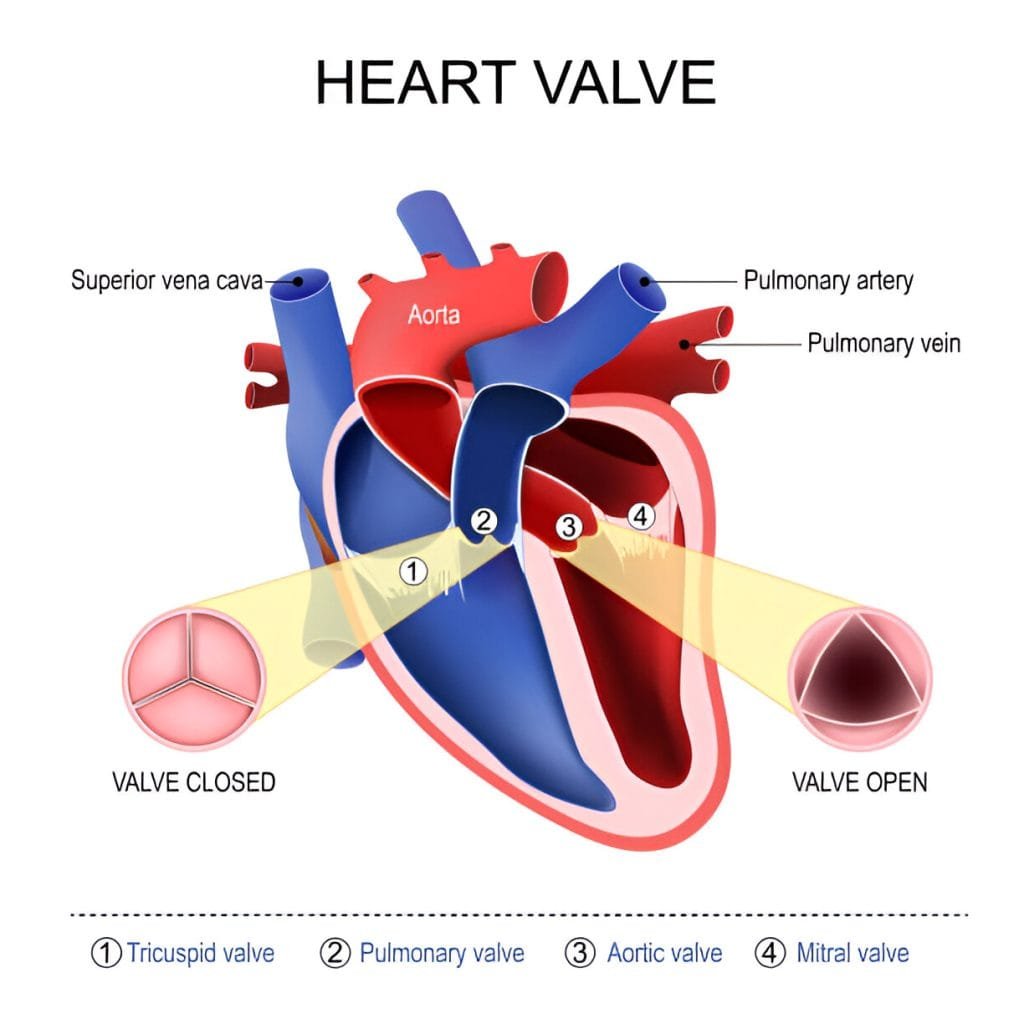Expert Advice

When we think about heart health, it’s easy to focus on the heart as a whole, its rhythm, strength, and the blood it pumps through our bodies. But deep within this powerful organ lie the valves of the heart, intricate structures that play a critical role in ensuring that blood flows in the right direction. We at Atrius Cardiac Care know how heart valves work.
With its two ventricles and two atria, the heart is a complicated organ. Blood flows between these chambers through valves that function as gates. Serious health issues may arise if the heart is unable to sustain sufficient blood circulation due to malfunctioning of these valves. The heart is a complex organ since it has two ventricles and two atria. The coronary heart valves, which act as gates, permit blood to go with the flow among those chambers quickly and successfully. Serious health troubles could arise if the heart could not maintain proper blood move because of malfunctioning cardiac valves.
Each of the heart’s four valves serves a specific purpose in managing blood flow. They open and close with each heartbeat, allowing blood to move from one chamber to another and, eventually, out to the rest of the body. These valves ensure that the blood flow is unidirectional, preventing any backflow that could compromise the heart’s efficiency.
The aortic, mitral, tricuspid, and pulmonary valves are the four main types of heart valves in humans. Each heart valve is distinct in its structure and function, and any abnormality in any one of the valves might result in potentially fatal circulation issues.
The aortic valve is one of the most critical valves of the heart. It controls blood flow from the left ventricle into the aorta, the largest artery in the body. The semilunar valves in the heart include the aortic valve, and they are shaped like half-moons, allowing them to seal tightly when closed. Aortic regurgitation occurs when this valve fails to function properly. It means that blood is spilling backwards into the ventricle.
The mitral valve, which sits between the left atrium and the left ventricle, is another crucial element of heart function. It makes certain that blood moves from the ventricle to the aorta and back again from the atrium. Prolapse or stenosis of the mitral valve can restrict blood flow, leading to fatigue, dyspnea, and other severe issues.
Blood flow between the right atrium and right ventricle is controlled by the tricuspid valve. This valve is essential in maintaining the heart’s rhythm and ensuring that deoxygenated blood moves efficiently to the lungs for oxygenation. Issues with the tricuspid valve, such as tricuspid regurgitation, can cause a range of symptoms, including swelling in the legs and abdomen.
Finally, blood flow from the right ventricle into the pulmonary arteries, which supply blood to the lungs, is regulated by the pulmonary valve. The heart’s pulmonary valve is a semilunar valve, just like the aortic valve. Proper functioning of this valve is crucial for ensuring that blood gets oxygenated in the lungs before being pumped to the rest of the body.

Heart valve disease can manifest in various ways, depending on which valve is affected and the severity of the issue. Some common symptoms include:
Shortness of Breath: This is often the first sign that something may be wrong with your heart valves. It can occur during physical activity or even at rest.
Fatigue: When the heart valves aren’t functioning properly, the heart has to work harder to pump blood, leading to feelings of exhaustion.
Swelling: Also known as edema, swelling in the legs, ankles, or abdomen can indicate a problem with the heart valves.
Chest Pain: Although more commonly associated with coronary artery disease, chest pain can also be a sign of heart valve disease.
Heart Murmurs: An abnormal heart sound, or murmur, may indicate turbulent blood flow due to a faulty valve.
If you experience any of these symptoms, it’s crucial to consult a healthcare provider immediately. Early detection and treatment are key to managing heart valve disease and preventing complications.
The treatment of heart valve disease depends on the specific problem, how severe it is, and a person’s overall health. These are some of the most common therapy choices.
In some people, medication may only be necessary to manage symptoms of heart valve disease. Some drugs may help to control blood pressure, reduce fluid build-up or prevent blood clots. However, medications to now not repair the coronary heart valves; they only assist control the condition.
In most circumstances, this is a reasonable exchange for replacing a heart valve. Intervention is possible and surgeons can do so an existing valve. This might entail resecting additional tissue, cinching the annulus or filling spaces. Since repair protects native heart valves and lessens the need for ongoing anticoagulant medication, it is typically indicated. Repair is commonly advised since it preserves the native heart valves and reduces the need for long-term anticoagulant therapy.
If the valve is beyond repair, it may need to be replaced. There are various types of replacement valves.
Mechanical Heart Valve: These are made from durable materials like metal or ceramic. While they last longer, patients will need to take blood-thinning medication for life to prevent clots.
Porcine Heart Valve: These are natural valves taken from pigs and treated for human use. They don’t require lifelong blood thinners, but they may not last as long as mechanical valves.
Artificial Heart Valve: Similar to mechanical valves, these are synthetic valves designed to mimic the function of real heart valves. The choice between a mechanical and biological valve depends on various factors, including age, lifestyle, and personal preference.
At Atrius Cardiac Care, we understand the complexities of heart valve disease and are committed to providing the highest standard of care. As one of the best heart hospitals in India, we offer a comprehensive range of services, from diagnosis to advanced treatment options, including heart valve surgery.
Our team of experienced cardiologists and cardiac surgeons are leaders in their field and are known for their expertise in heart valve repair and replacement procedures. Whether you require a prosthetic heart valve, a mechanical heart valve, or a porcine heart valve, you can trust us to provide the care you need.
Don’t wait until symptoms worsen. If you suspect a heart valve issue, schedule a consultation with Atrius Cardiac Care today.
Visit Atrius Cardiac Care’s website to learn more about our services and how we can help you maintain a healthy heart.
The valves of the heart may be small, but their importance cannot be overstated. Blood vessels are complicated, and moreover, they make sure that our blood circulates properly and fully functioning, all of which ties into the health. Learn about valves in heart, symptoms of heart valve disease, increased awareness, and your treatment possibilities to ensure well-being of your heart.
If you are experiencing symptoms or have been diagnosed with heart valve disease, do not delay seeking care. Atrius Cardiac Care, the best heart hospital in India, is dedicated to providing you with the expert treatment and advice you require as you manage this challenging condition. Your heart is in good hands with us.